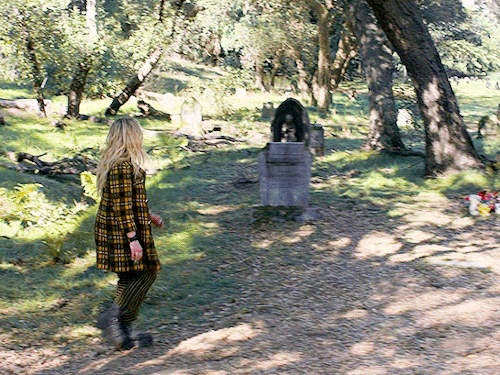So Someone Already Asked Me About This, But I’m Gonna Ask The Rest Of You Guys
So someone already asked me about this, but i’m gonna ask the rest of you guys
do some of you want to be put on a permanent tag list? i’ve been meaning to ask this for awhile but i never got around to it
anyway y’all can either comment, reblog, or simply DM me if you want to be
More Posts from Luwinaforna24 and Others
KARMA IS A BITCH 😭 i was on insta and saw noah schnapp get new glasses and i was hard core judging him because i know for a fact he needed new glasses because he ruined his eyes by watching tiktok everyday until 4 am 10 seconds later my glasses broke lmao and we are in lock down so the stores are all closed jsjsjshsh fun times man
“Scientists come in two varieties, hedgehogs and foxes. I borrow this terminology from Isaiah Berlin (1953), who borrowed it from the ancient Greek poet Archilochus. Archilochus told us that foxes know many tricks, hedgehogs only one. Foxes are broad, hedgehogs are deep. Foxes are interested in everything and move easily from one problem to another. Hedgehogs are only interested in a few problems that they consider fundamental, and stick with the same problems for years or decades. Most of the great discoveries are made by hedgehogs, most of the little discoveries by foxes. Science needs both hedgehogs and foxes for its healthy growth, hedgehogs to dig deep into the nature of things, foxes to explore the complicated details of our marvelous universe. Albert Einstein and Edwin Hubble were hedgehogs. Charley Townes, who invented the laser, and Enrico Fermi, who built the first nuclear reactor in Chicago, were foxes. It often happens that foxes are as creative as hedgehogs. The laser was a big discovery made by a fox. The general public is misled by the media into believing that great scientists are all hedgehogs. Some periods in the history of science are good times for hedgehogs, other periods are good times for foxes. The beginning of the twentieth century was good for hedgehogs. The hedgehogs—Einstein and his followers in Europe, Hubble and his followers in America—dug deep and found new foundations for physics and astronomy. When Fermi and Townes came onto the scene in the middle of the century, the foundations were firm and the universe was wide open for foxes to explore. Most of the progress in physics and astronomy since the 1920s was made by foxes.”
— Freeman J. Dyson, A Many-Colored Glass: Reflections on the Place of Life in the Universe
“I cannot make you understand. I cannot make anyone understand what is happening inside me. I cannot even explain it to myself.” - Franz Kafka, The Metamorphosis


Darn it!

Blue Admiral (Kaniska canace), family Nymphalidae, found in South and SE Asia
photograph by rajesh_kumar_photography

Susan Abulhawa, from Against the Loveless World: A Novel
[Text ID: “I wanted to be chosen, maybe loved. I wanted out of my life, out of my skin,”]
The Stellar Buddy System
Our Sun has an entourage of planets, moons, and smaller objects to keep it company as it traverses the galaxy. But it’s still lonely compared to many of the other stars out there, which often come in pairs. These cosmic couples, called binary stars, are very important in astronomy because they can easily reveal things that are much harder to learn from stars that are on their own. And some of them could even host habitable planets!

The birth of a stellar duo
New stars emerge from swirling clouds of gas and dust that are peppered throughout the galaxy. Scientists still aren’t sure about all the details, but turbulence deep within these clouds may give rise to knots that are denser than their surroundings. The knots have stronger gravity, so they can pull in more material and the cloud may begin to collapse.
The material at the center heats up. Known as a protostar, it is this hot core that will one day become a star. Sometimes these spinning clouds of collapsing gas and dust may break up into two, three, or even more blobs that eventually become stars. That would explain why the majority of the stars in the Milky Way are born with at least one sibling.
Seeing stars

We can’t always tell if we’re looking at binary stars using just our eyes. They’re often so close together in the sky that we see them as a single star. For example, Sirius, the brightest star we can see at night, is actually a binary system (see if you can spot both stars in the photo above). But no one knew that until the 1800s.
Precise observations showed that Sirius was swaying back and forth like it was at a middle school dance. In 1862, astronomer Alvan Graham Clark used a telescope to see that Sirius is actually two stars that orbit each other.

But even through our most powerful telescopes, some binary systems still masquerade as a single star. Fortunately there are a couple of tricks we can use to spot these pairs too.
Since binary stars orbit each other, there’s a chance that we’ll see some stars moving toward and away from us as they go around each other. We just need to have an edge-on view of their orbits. Astronomers can detect this movement because it changes the color of the star’s light – a phenomenon known as the Doppler effect.

Stars we can find this way are called spectroscopic binaries because we have to look at their spectra, which are basically charts or graphs that show the intensity of light being emitted over a range of energies. We can spot these star pairs because light travels in waves. When a star moves toward us, the waves of its light arrive closer together, which makes its light bluer. When a star moves away, the waves are lengthened, reddening its light.

Sometimes we can see binary stars when one of the stars moves in front of the other. Astronomers find these systems, called eclipsing binaries, by measuring the amount of light coming from stars over time. We receive less light than usual when the stars pass in front of each other, because the one in front will block some of the farther star’s light.
Sibling rivalry
Twin stars don’t always get along with each other – their relationship may be explosive! Type Ia supernovae happen in some binary systems in which a white dwarf – the small, hot core left over when a Sun-like star runs out of fuel and ejects its outer layers – is stealing material away from its companion star. This results in a runaway reaction that ultimately detonates the thieving star. The same type of explosion may also happen when two white dwarfs spiral toward each other and collide. Yikes!

Scientists know how to determine how bright these explosions should truly be at their peak, making Type Ia supernovae so-called standard candles. That means astronomers can determine how far away they are by seeing how bright they look from Earth. The farther they are, the dimmer they appear. Astronomers can also look at the wavelengths of light coming from the supernovae to find out how fast the dying stars are moving away from us.
Studying these supernovae led to the discovery that the expansion of the universe is speeding up. Our Nancy Grace Roman Space Telescope will scan the skies for these exploding stars when it launches in the mid-2020s to help us figure out what’s causing the expansion to accelerate – a mystery known as dark energy.

Spilling stellar secrets
Astronomers like finding binary systems because it’s a lot easier to learn more about stars that are in pairs than ones that are on their own. That’s because the stars affect each other in ways we can measure. For example, by paying attention to how the stars orbit each other, we can determine how massive they are. Since heavier stars burn hotter and use up their fuel more quickly than lighter ones, knowing a star’s mass reveals other interesting things too.
By studying how the light changes in eclipsing binaries when the stars cross in front of each other, we can learn even more! We can figure out their sizes, masses, how fast they’re each spinning, how hot they are, and even how far away they are. All of that helps us understand more about the universe.
Tatooine worlds

Thanks to observatories such as our Kepler Space Telescope, we know that worlds like Luke Skywalker’s home planet Tatooine in “Star Wars” exist in real life. And if a planet orbits at the right distance from the two stars, it could even be habitable (and stay that way for a long time).
In 2019, our Transiting Exoplanet Survey Satellite (TESS) found a planet, known as TOI-1338 b, orbiting a pair of stars. These worlds are tricker to find than planets with only one host star, but TESS is expected to find several more!
Want to learn more about the relationships between stellar couples? Check out this Tumblr post: https://nasa.tumblr.com/post/190824389279/cosmic-couples-and-devastating-breakups
Make sure to follow us on Tumblr for your regular dose of space: http://nasa.tumblr.com
I’ve just read one of the very first (or maybe the first) script used for the movie The Lion The Wicth and the Wardrobe and there are so many goods stuff in there I need to share it with you:

Edmund rushing to hug his mum at the train station is the cutest thing ever.

Edmund making Lucy laugh and bringing her biscuits to cheer her up !

The Pevensies mother was supposed to be named Miriam (it later changed for Helen).

This is after Edmund came back from Narnia the first time. FORESHADOW !

Susan being funny and making Peter smile.

Peter and Susan being the Dad and Mum as usual.

Lil’ Edmund being concerned for his family.

Susan and Mrs. Beaver being BFF.

Father Christmas and Lucy talking about Edmund’s gift.

Susan trying Narnian clothes for the first time.

Edmund finally being done with Jadis.

The Pevensies sharing a fun moment with Aslan.

I think this is my favorite !!!

The Pevensies being at Cair Pavarel (I so needed that scene).

Edmund and Lucy being adults and still making fun of Susan.






I was in there for five seconds, I come out and I’ve lost five years of my life. HAWKEYE (2021) || BLACK WIDOW (2021)
-
 sheeshhhhfelixsworld reblogged this · 3 years ago
sheeshhhhfelixsworld reblogged this · 3 years ago -
 diamondlioness liked this · 4 years ago
diamondlioness liked this · 4 years ago -
 generaltrashtragedy liked this · 4 years ago
generaltrashtragedy liked this · 4 years ago -
 brythebibliophile reblogged this · 4 years ago
brythebibliophile reblogged this · 4 years ago -
 brythebibliophile liked this · 4 years ago
brythebibliophile liked this · 4 years ago -
 avasjunkpile reblogged this · 4 years ago
avasjunkpile reblogged this · 4 years ago -
 avasjunkpile liked this · 4 years ago
avasjunkpile liked this · 4 years ago -
 finnshelbymustbeprotected liked this · 4 years ago
finnshelbymustbeprotected liked this · 4 years ago -
 captainkaseykirk liked this · 4 years ago
captainkaseykirk liked this · 4 years ago -
 classystatesmanmugathlete reblogged this · 4 years ago
classystatesmanmugathlete reblogged this · 4 years ago -
 hanimminju liked this · 4 years ago
hanimminju liked this · 4 years ago -
 goodandevil18 liked this · 4 years ago
goodandevil18 liked this · 4 years ago -
 currentobessionunknown reblogged this · 4 years ago
currentobessionunknown reblogged this · 4 years ago -
 changing-constantly0 reblogged this · 4 years ago
changing-constantly0 reblogged this · 4 years ago -
 changing-constantly0 liked this · 4 years ago
changing-constantly0 liked this · 4 years ago -
 just-asillygoofy-dudd reblogged this · 4 years ago
just-asillygoofy-dudd reblogged this · 4 years ago -
 plq-cid reblogged this · 4 years ago
plq-cid reblogged this · 4 years ago -
 plq-cid liked this · 4 years ago
plq-cid liked this · 4 years ago -
 benakenalove liked this · 4 years ago
benakenalove liked this · 4 years ago -
 librais2close2delirium liked this · 4 years ago
librais2close2delirium liked this · 4 years ago -
 scrawnytoothpastetaste liked this · 4 years ago
scrawnytoothpastetaste liked this · 4 years ago -
 tornadotxri reblogged this · 4 years ago
tornadotxri reblogged this · 4 years ago -
 yourfavoriteakutagawakinnie liked this · 4 years ago
yourfavoriteakutagawakinnie liked this · 4 years ago -
 elladora-winter liked this · 4 years ago
elladora-winter liked this · 4 years ago -
 ijustreadfanfics liked this · 4 years ago
ijustreadfanfics liked this · 4 years ago -
 trickyfox liked this · 4 years ago
trickyfox liked this · 4 years ago -
 luwinaforna24 reblogged this · 4 years ago
luwinaforna24 reblogged this · 4 years ago -
 luwinaforna24 reblogged this · 4 years ago
luwinaforna24 reblogged this · 4 years ago -
 luwinaforna24 liked this · 4 years ago
luwinaforna24 liked this · 4 years ago -
 toasted-crispy-emo27 reblogged this · 4 years ago
toasted-crispy-emo27 reblogged this · 4 years ago -
 what-the-hell-is-a-dropship reblogged this · 4 years ago
what-the-hell-is-a-dropship reblogged this · 4 years ago -
 what-the-hell-is-a-dropship liked this · 4 years ago
what-the-hell-is-a-dropship liked this · 4 years ago -
 bigsnackcrickleback liked this · 4 years ago
bigsnackcrickleback liked this · 4 years ago -
 average-luck-charlie reblogged this · 4 years ago
average-luck-charlie reblogged this · 4 years ago -
 average-luck-charlie liked this · 4 years ago
average-luck-charlie liked this · 4 years ago -
 halcyondaisy liked this · 4 years ago
halcyondaisy liked this · 4 years ago -
 redtaylors-version liked this · 4 years ago
redtaylors-version liked this · 4 years ago -
 sylviedonnas liked this · 4 years ago
sylviedonnas liked this · 4 years ago -
 rosemaryaj liked this · 4 years ago
rosemaryaj liked this · 4 years ago -
 justicetothestars liked this · 4 years ago
justicetothestars liked this · 4 years ago -
 random-fangirl001 liked this · 4 years ago
random-fangirl001 liked this · 4 years ago

Tumblr is my guilty pleasure if you know me on real life you don't. I am not her.
160 posts